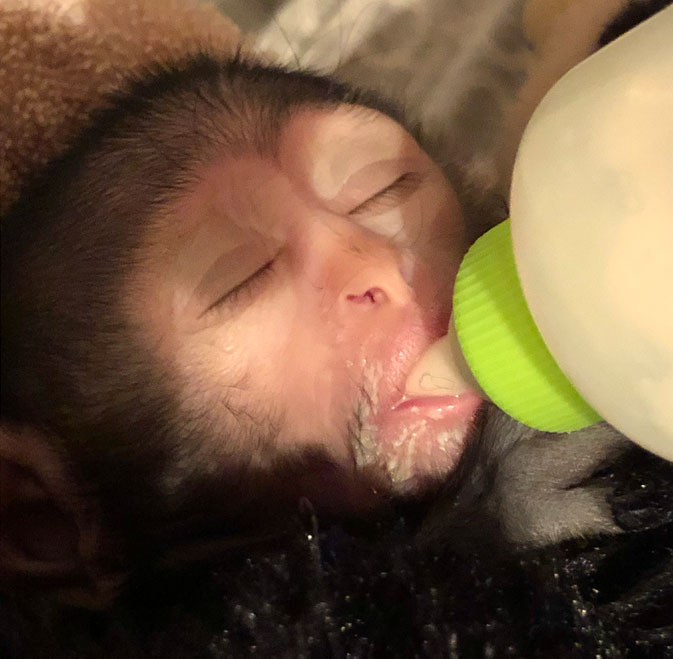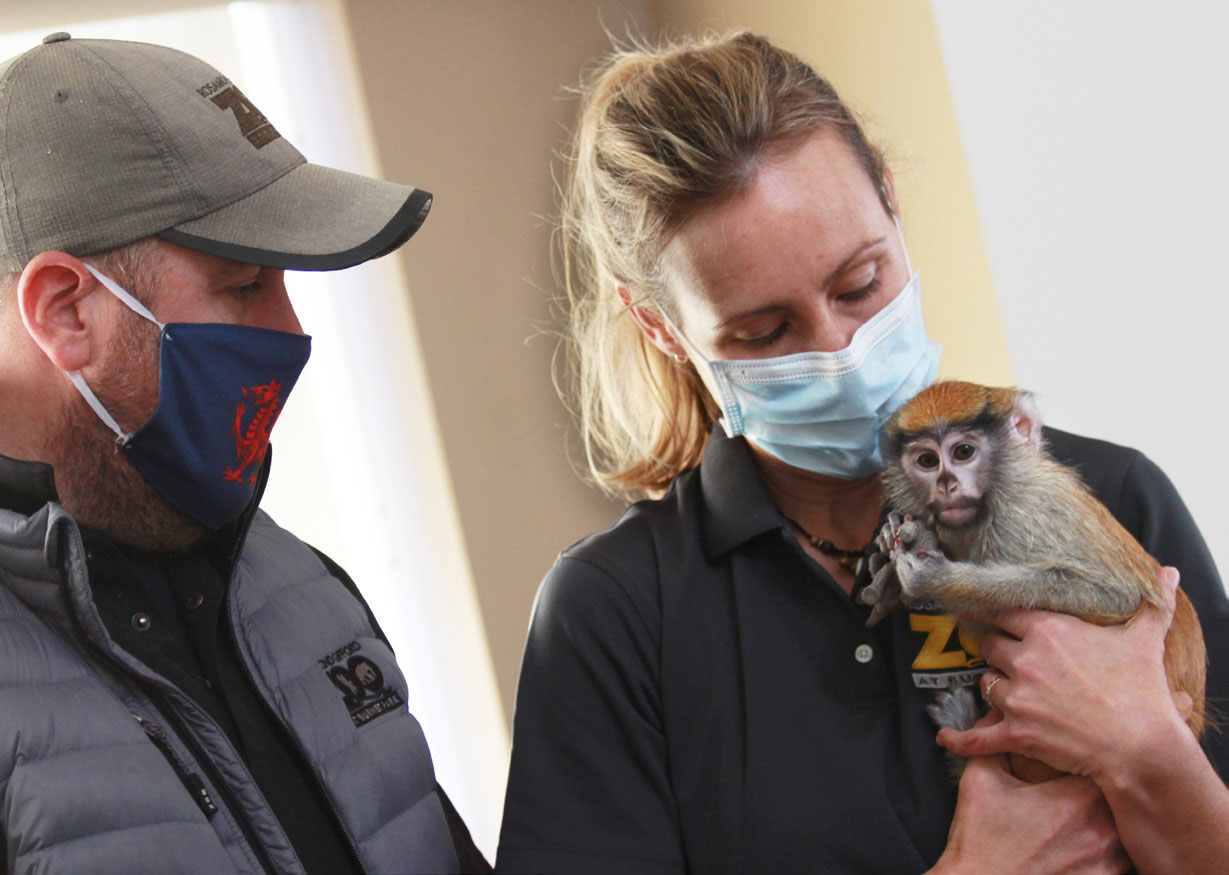Story
If you have interacted with our animal care staff, you know how devoted these professionals are to the animals in their care. They cherish each day they get to spend working with amazing animals, educating people about them and helping save endangered species from extinction. But there are days that stand out as especially challenging or significant. Monday, June 8, 2020, was both.
When they arrived at work that day, our primate team expected to welcome a baby patas monkey. Becca, one of the zoo's adult females, had gone into labor the night before. Her three previous births all went smoothly. No one could have foreseen the tragedy about to unfold.
That morning, animal care staff observed that Becca's labor was not progressing. Concerned, Cornell University veterinarian Dr. Becky Eddy, who practices at the zoo, called in an animal reproduction specialist to assist. Dr. Soon Hon Cheong drove from Ithaca and performed an emergency C-section without incident. The baby was healthy with a strong heartbeat, Zoo Director Ted Fox said. Everything seemed to be going fine. And then the mom's heart stopped. Becca could not be revived. A necropsy later found the cause was renal failure. The zoo team was stunned at the loss of Becca, who had been in their care for 10 years. But this was not a time to grieve, because her tiny newborn now needed to be hand-reared starting immediately.
General Curator Dan Meates had the day off, but the team kept him updated. He had them pack up the equipment he would need, including an isolette, bottle feeding supplies, towels, gloves and wipes. To save time, Animal Manager Seth Groesbeck bundled up the 3/4-pound baby and met Dan halfway. Dan called his wife, Leisje, a herpetologist and aquarist on duty at the zoo. "I'm bringing home a baby monkey, " he said.
Dan and Leisje knew this meant they would eat, breathe and sleep baby monkey care for months . The couple had 20 years' experience raising newborns and hatchlings of various species at zoos around the world. Their first step was to reach out to our accrediting network, the Association of Zoos & Aquariums (AZA), whose 240 member institutions share health records, research data and best practices for thousands of species in their care.

But a search for protocols on hand-rearing a baby patas monkey, or even a similar species, came up empty. It began to sink in: This species has never been hand-reared by humans. There was no baby patas care manual. They would have to write it.
Dan and Leisje turned a room of their home into a sterile nursery with supplies including a stuffed Rottweiler that the baby clung to, just as she would have clung to her mother. The isolette maintained airflow at 95 degrees F to be slowly reduced to 75 over several months. Dan and Leisje took turns bottle feeding her every two hours. They cleaned the isolette so often that they produced 16 loads of laundry a week.
Leisje also researched baby names. She wanted an African name that would reflect the baby's birth during a pandemic and the loss of her mother. She found the perfect name: Iniko, meaning "Born during troubled times. "
They kept detailed notes on when Iniko ate, how much, her weight and temperature and every activity for a future scientific paper and to share with our AZA colleagues. They learned Iniko would only eat in a calm setting without distractions, yet she bounced around with amazing agility in a matter of weeks, Dan said.
As Iniko has grown more active, the Meates' have been bringing her to the zoo to expand her world and allow others to assist in her care. They use the zoo conference room as her playroom while creating a more suitable space with ropes, branches and other monkey furniture. Their adorable baby is now a curious little whirlwind who is thriving in their care. But the next step may be the biggest challenge: introducing Iniko to her real family.
From Day One, the zoo team knew not to treat Iniko like a human baby or a pet. Her development into a normal adult monkey depends on her being part of a troop, a tight social group that functions as a unit. Our team hopes she'll be adopted by our troop's matriarch, Sarah, who loves babies but can no longer have any. But all five monkeys in the troop will have to accept her.

Besides their expertise, this team has three superpowers: dedication, determination, and your support. As a member of our extended Friends of the Zoo family, you know that maintaining a world-class zoo takes overwhelming community support and a commitment to global conservation.
It is our hope that your support will take the form of a generous contribution to keep your zoo on solid footing as Central New York's center for wildlife conservation. But we would be very grateful for even a modest gift on behalf of a baby monkey born in troubled times.
Thank you for your support! P.S. Visit our Facebook page for photos and updates on Iniko!
